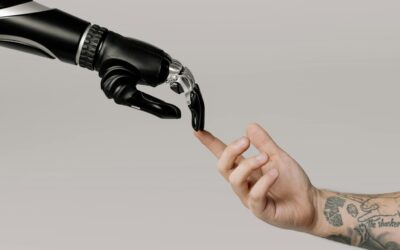Uplevelving Your Life and Money with Thomas Blottenberger
Are you consistently upleveling, or do you find yourself stuck? Thomas Blottenberger talks about breaking through and finding success!
Listen to us On
About the Episode
We focused on upleveling your life and money, how to gain a sense of control amidst chaos, breaking free of patterns and programming, and how to get started, with Thomas Blottenberger, CFP, ChFC, ABFP, and CoFounder of Paradigm Shift Financial.
Listen to hear a difference-making tip on a simple and effective method for getting your cash flow and spending under control!
You can learn more about Thomas at ParadigmShift.ADXLeader.com, and LinkedIn.
Did you get anything out of this episode? Do us a solid and leave a review:
https://ratethispodcast.com/alignedmoneyshow
Learn more and engage at MoneyAlignmentAcademy.com, Twitter, LinkedIn, Instagram, YouTube and Facebook.
Buy George G a coffee (he loves coffee)
https://www.buymeacoffee.com/lifeblood
Have George G speak
https://moneyalignmentacademy.com/speaking/
Financial literacy and wellness for individuals, families, and companies
https://moneyalignmentacademy.com/
Find George G’s books here
The Aligned Money Show is the podcast for Money Alignment Academy, copyright 2024.

George Grombacher
Host

Thomas Blottenberger
Guest
Episode Transcript
george grombacher 0:01
Thomas to get us started. Give me two truths and a lie, please.
Thomas Blottenberger 0:06
Alright, George, let’s see. I grew up in California. I’ve run a marathon and completed without training. And my grandmother was the 21st of 21. Children.
george grombacher 0:25
The 20th of 21 kids.
Thomas Blottenberger 0:29
The 20/21 of 21. Kids. Oh, maybe.
george grombacher 0:35
That’s actually all right. Those are really good. You were born in California. You ran a mile without train for it. And Grandma was potentially the 21st of 21. Children. Oh, my goodness. Well, California, why not? Running a mile without training foolish, but maybe grandma had more kids back then? I’m gonna say that you weren’t born in California. Thomas. Now
Thomas Blottenberger 1:02
you got me. Ah, got the lie. How awesome.
george grombacher 1:09
Tell me about the mile or the marathon.
Thomas Blottenberger 1:11
The marathon? Yeah. It was November 2011. That was in Hawaii. I’m from Hawaii. That’s that’s where I was born. The blonde burger name doesn’t really give it away. And um, but there you have it was November 2011. And I thought, What the hell? I should probably like try to run a marathon. Like that’s something I’m having done. Why not? And the next one available was December, a month away. And I went, alright, I’ll give it a shot. See what happens? Yeah. And I completed but it wasn’t pretty. And I’ve never run since know.
george grombacher 2:00
What was going on in November of 2011? Thomas? Like an existential crises breakup?
Thomas Blottenberger 2:12
No.
george grombacher 2:15
No, my business
Thomas Blottenberger 2:18
was what was going on in 2011. So it was when I started to discover I’ve been in like self discovery and transformational work, like, you know, the kind of work that requires you to think about how you think I’ve been in that for about 15 years. And that was probably the first year I’d really discovered it. But I don’t know, I think, well, here’s what I would say about it. What I used to be I think most people deal with this is my thinking was the truth. And I was trapped in it. And there wasn’t any possibility. And life was a struggle, and life was difficult. And I had this discovery of oh, I’m the one who makes it mean that I’m the one who’s responsible for that. And I think that newfound discovery was just like, I can do anything. Why not take on a marathon. Let’s go. Now, I will say one discovery out of that is there is still being prudent. You can do anything and prudency wins the day. When it relates to surviving things. I did survive that but very difficult.
george grombacher 3:42
Yeah. Sometimes discretion, the better part of valor. Right. Yeah. Prudence, okay. I love everything about that story. I think it’s awesome. Like, oh, you know what, I need to really rethink my thinking, and what if the opposite of what I believe is true, and I can do anything cluding run a marathon without even trained for it. You were right. Yeah, there you go. Awesome. And Grandma was in fact, the 21st of 21 kids. That is amazing. When she Where Where did this happen? And why?
Thomas Blottenberger 4:14
Yeah, that was also in Hawaii. Okay, so my mom’s side, which is the grandmother on my mom’s side, paternal grandmother. We go back six generations on the island. My dad’s pretty much all German. So that’s when my face looks the way it does. And my name looks the way it does. But, ya know, I guess, maybe Island fever. I didn’t. She didn’t really have much to do my grandmother. I don’t know. Or my great grandmother. I don’t know. I can’t even fathom it today. I have one and I go, Whoa. Yeah,
george grombacher 4:53
it’s a lot. For sure.
Unknown Speaker 4:56
Wow. Well, that’s
george grombacher 4:57
a that’s a whole nother podcast episode. So I love it. That’s a job well done on two truths and a lie, Thomas. What is what is top of mind for you right now?
Thomas Blottenberger 5:08
What is literally? Well, there’s a lot of things that are top of mind, but was literally top of mind was when I was listening to some of the other shows as your some of your most recent guests. I bet I’ve actually met small world. Yeah, I was looking through it. I’m like, it was Elaine from Hawaii. And then Chad, I met him at an event in 2017. That was I was like, alright, so George has got some good people on here based on on, you know, confirmation bias? Yeah, for sure.
george grombacher 5:40
He’s a smart guy. But
Thomas Blottenberger 5:44
other than that, just you know, my mind is really been on just the events in the world, and mainly observing people. And observing myself and just noticing how much uncertainty there is just in general, right? There’s, I would say, I would assert that there’s a higher level of uncertainty that exists exists right now than I think most of us are used to. Right. It’s, it’s almost palpable. But then also realizing life is literally uncertain. Right. And it’s really how we deal with that uncertainty. I think Chad, on your other podcasts pointed to a little bit right, the mindset. And so that’s really what’s been what’s been there for me is doing the looking at what’s it says, given that life is uncertain. Given that everything is a question mark, for the most part, what does it look like to be empowered by that? Versus at the effect of and disempowered by it? And I don’t know that there’s an answer to that. I think sometimes the most powerful thing we can do in life is to have a question. That’s not answered, just kind of look through it.
george grombacher 7:11
You think that we do well with that?
Thomas Blottenberger 7:13
It’s not normal. It’s not the programming of being human. We’re really we’re humans is a machine are really powerful, really functional for particularly surviving. So you look at one of the main things that the brain is predominantly, really good at doing. It’s really good at taking new processes, and then automating them via your subconscious. And take a kid learning how to walk and then watching them stumble and figure it out. And all of a sudden, that running, boom, they don’t think about it anymore. It’s subconscious driving, right? I remember when I first learned to drive and I did a parallel park and I totally took out the bumper of the car I was this parallel parking that’s there. Right now I can do it pretty much without thinking about it. So the brain is phenomenal for those kinds of things. It’s not really great at questioning itself. That actually takes some kind of that takes intentional, fatiguing effort. And, and I think there’s a lot of value in doing it. Because a lot of times what we think is the truth is just the story. It’s just something we’ve made up or our version of, of reality. And if I’m not really willing to question my version of reality, I don’t ever have access to discovering things that might be more powerful.
george grombacher 8:48
There’s a lot of important stuff there. I think that I certainly follow a lot of predictable patterns and habits. I am a I like routines, I like to do things and talking about learning how to walk, learning how to talk, we’re sort of constantly for lack of a better term up leveling, and we understand how to do something and then we’re able to execute that and that’s comfortable. And then all of a sudden, you’ve got a job and you’ve got bills, and you’ve got kids and obligations and so it makes it more difficult to keep up leveling. Yep.
Thomas Blottenberger 9:22
Yep. Well, it’s it’s also that there’s a it explains why there’s people that have a lot of things and still aren’t happy. It also explains that because, like, what I picture is, you know, the first time I started dating my wife, and just what that experience that newness, that experience, right, the discovery, and then what can tend to happen is it becomes routine. Right? It’s it’s from Wow, this moment is amazing. Look how, who is this person who is She wants to Oh, that’s my wife. Right? And it almost becomes like a given. And and so when we say thing, this is part of the I think the problem with the world and part of the problem with coaching, let’s call it is we like to say people will say cliches like, don’t take things for granted. And it’s like, Well, cool, but where’s my access to that? How do I just randomly stop taking things for granted? What a cool story cool concept? How do I apply it? And one of the ways I see to apply it, this could be the tip, right? But one of the ways I see to apply it is, notice in your life, how many routines you have how often you go to subconscious. And if it’s something that’s actually important to you, like your kids or your marriage or your business, take the purposeful effort to bring it back to the conscious bring it take purposeful effort to bring it back to the newness to the discovery, to the aliveness to the uncertainty. And there’s power in that there can be more, you can recreate your loved ones every single day just by, you know, discovering them newly.
george grombacher 11:16
I love that it is very common of us to grow accustomed to things and things can become monotonous. I certainly like novelty as much as the next person and newness. But you’re saying that it’s possible with effort, the right framing or thinking to recreate that?
Thomas Blottenberger 11:38
Yeah, that’s perfectly said, it is effort because the brain isn’t. The brain is a machine. If you look at the brain science, it’s not designed to do that. It’s designed to predict the future, using past events. It’s designed to automate routines. And it’s designed to survive. And while phenomenal for what it’s designed to do. Most of us don’t need to survive anymore. Most humans have more than they need. And yet, because of the design of the brain, we’re still surviving everything. And so that’s why you see the 24/7 news cycles and people freaking out about who’s going to be president and people freaking out about what to do with their accounts. And it’s just normal human stuff, or even, you know, the social unrest of certain things. When we have more, we have more today than the richest person alive 300 years ago, right? The average person has more creature comforts than the richest person 300 years ago. And yet, the way the brain is designed doesn’t let us be happy. Because it’s got to find something to survive. Because it’s programmed that way. And it actually takes some effort to bust that.
george grombacher 12:54
I agree. I was thinking about how you take a lie, and you put them in that you put, you put the line in the zoo. And they sort of get that glazed over look, because it defies their nature, and they’re not happy. And we are I don’t know what we’re designed to do. I don’t think that we’re designed to sit in a cubicle and do TPS reports for eight hours a day and just do that, and then do fantasy football at nighttime and watch Netflix, and then repeat and repeat and repeat. But our brain does like to keep us alive. So it’s giving us that just consistency, even though it’s against our nature.
Thomas Blottenberger 13:32
You know? Well, even in the mundane, there’s a way to find power and purpose in it. You know, there’s a I don’t know the truth of this, because I haven’t verified it. But there’s a story that when Kennedy made the claim that we were going to put a man on the moon. And NASA was putting all of its effort into that, that someone asked a janitor at NASA, you know, what are you? What are you guys doing? What are you doing? And he said, I’m putting a man on the moon. Right. And so he could have just said, I’m a janitor, you could have just said I’m just cleaning up stuff. But he bought his role in the mission, put a man on the moon. And so we there’s always things that we you know, people have to do, there’s jobs that for someone to be a CEO, someone has to be willing to take a secretary position or a worker position or someone has to be willing to do that. But the action of doing that doesn’t have to define your experience of it.
george grombacher 14:32
It’s one of my favorite stories, for sure. I think that the way you look at somebody makes all the difference, for sure. And we get to choose that. I get to choose how I how I view and think about and feel all the circumstances in my life. And I think a lot of people call bullshit on that. Like I’m just a secretary or whatever I’m digging ditches. But it’s it’s a choice, and it needs to be a conscious one to your point, not unconscious
Thomas Blottenberger 14:59
More than what you just said is perfect. Like, why would someone to call bullshit on that? If you really do the looking? Right? Why would someone call bullshit. And again, this isn’t a assessment or a judgment of the person, it’s just an awareness of how the mind works. Sir, taking responsibility, like actually owning I am here in my life as a function where I’m standing in my life as a function of my actions. And my actions alone, the things I chose to do the things I didn’t choose to do, the conversations I chose to have the conversations I didn’t choose to have. It’s, it’s anti survival, to be responsible for what your life looks like. It’s very much so survival and natural and normal to go, Well, I’m just a secretary because XYZ I’m just here because my parents did this because my wife said this because of, you know, and it’s not a it’s not wrong or bad. It’s just no power. And most people live life with no power.
george grombacher 16:07
So locus of control my belief in my ability to impact the world that I’m the, the water I’m swimming in or whatever.
Thomas Blottenberger 16:16
Yeah, and this is I want to be clear, this isn’t like some Frou Frou like fuzzy touchy feely conversation in regards to like, oh, just just think good thoughts and life will like magically be sunshine and rainbows, right? And it’s not that it’s just, it’s about what gives you the most power and to deal with life because life’s gonna happen. Things go crazy, right? Like, there are circumstances beyond your control. And it’s foolish to think that you could control some of the circumstances. But what gives me power is who I am in it. Right? What are my choices in it? How did my choices get me here? Right? What What? What can I be responsible for in it so that I see actions I can take differently. If it’s always someone else’s fault, there’s no actions I need to take. So if there’s no actions I need to take, I’ll just keep repeating the past with different people or different scenarios, and I’ll always be someone else’s fault. That happens a lot with money and finances. You know, I’ll talk to people who have had their sevens advisor. And it’s like, you know, I’ll be the seventh person they’re interviewing. And we’ll deal with that. Like, what happened in the past? Oh, well, this person gambled with my money. Okay, well, then what happened with this person? Oh, well, this person lost all my money. Oh, what happened with this person? Well, this person embezzled it, alright, what will happen with this person? Well, this, this person, you know, didn’t make me anything, but didn’t lose me anything either was just flat. It goes, well, how much? You know, the question that comes to mind, and that kind of a conversation is, well, how much did you try to learn about this stuff? And they’ll say, Well, I just trusted them. Well, there you go. There is your locus of responsibility, right? So there’s
george grombacher 18:07
so many things, it’s that’s probably did you think that? I think that right now, I know that society is is telling us that there are a lot of things that are forces impacting us. But do you think that that’s a biological or hardwired thing in us to say, this is why I’m here instead of saying, How am I going to get out of here?
Thomas Blottenberger 18:36
Can you expand upon that a little when you when you’re saying like, how do I get out of here? Or yeah,
george grombacher 18:42
it’s like why somebody told me years ago, they said people argue for their limitations. So why am I here? Because you know, because I was abused as a child. Horrible. But you’re going to spend your life as a victim versus you’re going to spend your life as a survivor. Yep,
Thomas Blottenberger 18:58
yep. Okay, I get what you’re asking there. Well, again, it’s it’s all brain science. It’s just the condition of a human. The default position is surviving life. And nothing allows for survival more than someone else being responsible for why it looks the way that it is. Because then, you know, you gotta get well you don’t have to get but it’s an opportunity to get right. How, how risky it actually is, how much risk you have to take to be willing to say, This is my fault. I like because there’s so much behind that, right? Well, if it’s my fault, I’m a failure. I’m, you know, I didn’t do it. Right. I messed up. And it’s all things were kinda like, taught to shove under and not really admit or acknowledge, right? It’s besides the fact that it’s kind of a human condition to sort vibe, you know? Now there’s no evidence of this as far as I don’t I don’t have a claim or a study or this is just antidotal. But I noticed, like, if someone tells the truth as a kid, and then they’re punished, what would that reinforce? Well, that would reinforce not telling the truth, right? Like, when I tell the truth, when I say what’s actually there for me to say, things go bad, I get punished. So I gotta pretend it’s all okay. Or I gotta not say what’s actually there, or I gotta blame someone else.
george grombacher 20:38
Incentives, and then the abdication of responsibility. Somebody else, somebody else’s fault. My my default is keep myself alive and just stay in the shallow water, then that’s, that’s, that’s where I’m going to stay. And it’s safe,
Thomas Blottenberger 20:54
but it’s not alive. Not at all. Yeah. And it’s safe, but it’s not an adventure. You know, being being willing to, you know, I’ve broken my business more times than I can count at this point. I was in the industry as a as a certified financial planner, and a insurance guy predominantly selling permanent insurance policies. And then I discovered, just some of the investing things that we were doing didn’t really make sense. They seemed like they were gambling with people’s money, and I couldn’t explain them to clients. I was just told that I should do those things. And when I discovered that what I was doing wasn’t working and discovered, like, oh, no, there’s actually economic science to how you invest, like, given that markets are driven by supply and demand. There’s an economic formula and science to a lot of the stuff that if I just adhere to with my, my, my investing, it’s particularly and specifically with my capital markets, like stock markets, life goes really nice over a long period of time. But we’re not taught that as practitioners. So I learned that and I brought that to my old firm, and they were like, they’re like, dude, leave to learn to not be worried about the markets, they won’t buy the insurance stuff. So what are you doing big clients? I’m like, Oh, we’re the bad guys. All right, awesome. Good to know, I had no idea. And I left a high six figure revenue and to start this business with nothing, right, zero. And then I had a business partner until the beginning of this year, and she was my best friend. And it wasn’t working. And it hadn’t been working for years. But I had avoided the conversation because I didn’t want to damage the friendship. And that’s, I mean, I know there’s tons of people out there that are experiencing things like that they’ve got businesses that aren’t working because of relationships that they got that don’t want to hurt. They’ve got marriages that aren’t working because of relationships they got, they’re just not being honest about what’s there. Right. It’s too risky. And I ended up being honest. And finally, you know, it was time to say what there was to say, and we split. And we’re not friends anymore at this at this particular moment, I have a commitment and a hope that that gets repaired. But at this moment, that’s not reciprocated. And that’s okay. It’s life. I mean, it’s, it’s a, I’m alive as a function of embracing the risk. And then right now, I’m looking at breaking it again, because I’m a financial planner. But the conversation you and I are having right now about life and about the difference that can be made for people in discovering this kind of, you know, inquiry, in addition to managing their money. This is really what drew this is what gives me the juice like this gets me up in the morning. And I don’t know what that looks like, because I’ve been a planner for 15 years. But you know, if you’re not willing to do that, if you’re not willing to shake it up. That’s where that’s where the life really gets lived. That’s been my experience of it. It’s inside of that that I’ve had the most opportunity to really just get present to wow, shits great. Like
george grombacher 24:16
should is great for sure.
Thomas Blottenberger 24:20
Thank you for allowing me that my tirade
george grombacher 24:23
1,000% You know, I, I appreciate I appreciate. I appreciate your thoughtfulness and everything you’re talking about, and also your predicament for lack of a better term. Because you had success in a challenging industry and had developed a practice doing something that you knew how to do sort of like the conversation from earlier sort of level up and Okay, now I know how to do this, but I’m gonna break the thing because it’s no longer satisfying or bringing me the joy that I’m looking for out of my career and my life and I’ve only got one crack at this deal. So it There’s no better time than now to reassess.
Thomas Blottenberger 25:03
Yep, I can say it better. That’s well, I guess the only other thing that I’m noticing is either you break it, or someone else will break it for you. Like, there is no, especially in today’s world, this is one of the things I love about capitalism and free markets, or at least free ish markets, is someone’s always trying to come up with a better version of what you got. And if the moment you get comfortable is usually the moment you lose, you lose the battle.
george grombacher 25:36
Base forward, bass, the possibility of extinction, like that was from Mallrats. Thomas, over Mallrats.
Thomas Blottenberger 25:46
I remember I think I saw that in a museum that about that. No.
george grombacher 25:50
Yeah, well, for sure. That was percent is a historical artifact at this point,
Thomas Blottenberger 25:55
for sure. So why and pointing this back real quick? Just, you know, what does all this have to do with finances and money? Well, what it has to do with is, this is why most people are never happy, even when they make more money. When they get more stuff, when they have more resources. When they have multiple businesses, you know, there’s that momentary, ah, I’ve made it. This is how I got that car, who wow, I never thought I’d be able to get it, I got that business, I got that property I’ve got and there’s that momentary, ah, and then inevitably, there’s that loses its newness, it becomes routine. And then it’s not, it doesn’t bring joy anymore. And in most instances, it just becomes something else to compare against.
george grombacher 26:43
Well said, Brother, well, we’re gonna have a difference making tip. So you’ve already given us a lot of things to chew on and think about, but we’re ready for the difference making tip Thomas, what do you have for us. So
Thomas Blottenberger 26:55
this works really well for actually the tool that we use to automate this. But this works well, for pretty much anybody across the board, whether you’re making a ton of money and killing it, or you’re paycheck to paycheck, one of the biggest brain hacks that you can do is, if you look at how most people cash flow actually flow their income. Most people flow their income into a bucket that they’ve been conditioned for years, probably, since the beginning of their experience with money is to spend money, that they put money into a checking account, it gets spent, they put money in your checking account, it gets spent, and sometimes they save some of that. And what that usually leaves people with is one of two things just as a function of human nature, it either leaves people hoarding money, guilty when they spend it, or it leaves people spending all their money regretting they didn’t save some of it. And usually, you’ll find most people on either side of those, that pendulum at varying degrees of extremity, right. So the easiest way to solve that problem, the easiest way to deal with that is to trick the brain by separating out the container that receives the income from the container that spends the income actually have it where all cash flows flow into a bucket that you don’t have any kind of spending from no mortgage, no lifestyle, no nothing. And then from there, you control the flow into a checking account that pays the mortgage pays the expenses pays for lifestyle, because what’s automatically happening in doing that. First off is you’re automatically saving money, right? So if I’m have a pay raise of 10%. I don’t go Oh, where did that go? Because I already captured it right off the bat. Secondly, is you can actually create guilt free spending out of that. Now it’s not Oh, I shouldn’t have spent that it’s Oh, I moved the money into this account specifically to spend it. So it’s okay that I spent it I actually designed it that way. It’s probably one of the most powerful brain hacks I’ve ever seen. And it’s really missing in the cash flow conversation.
george grombacher 29:15
Well, I think that that is great stuff that definitely gets a cut off. You know, sometimes the simplest answer is in fact, the best one and simply changing the container to which your your paycheck flows into and then what you do with it after that. Those are simple, probably free things you can do and it could make all the difference. So I love it. Well, Thomas, I’ve enjoyed our conversation. Thank you so much for coming on. How can people learn more about you? Where can they engage with you?
Thomas Blottenberger 29:43
It’s awesome. Well, it’s been really great being here with you too, by the way. Thank you. And what as you pointed out my one of my LinkedIn isn’t working correctly. So the one they should if they want to look me up, they can look me up on LinkedIn under Thomas blonde burger. My name And then the website that I have that tells a little bit more about the story is paradigm shift.ad x leader.com. And ADX stands for American Dream experience leader which is something we didn’t get to
george grombacher 30:19
something to talk about next time. Next time. I’d love it if you enjoyed as much as I did so Thomas your appreciation and share today show the friend who also appreciates good ideas find Thomas blatten burger on LinkedIn and then go to paradigm shift dot ADX leader.com and dig deeper into the world of all things. Thomas I will link all those in the notes of the show. Thanks again, Thomas.
Thomas Blottenberger 30:46
Thank you for having me. It’s
george grombacher 30:47
been great. Finally friendly reminder, never gonna be anybody more interested in your financial success than you are. So act accordingly.
More Episodes
Beyond the Bank Balance: Cultivating a Soulful Relationship with Money
You don’t need to be a Wall Street shark or a personal finance guru to develop a healthy relationship with money. In fact, most of us start with little more than a jumble of beliefs and habits passed down from our families. But if you’ve ever found yourself stressed...
How Using AI Can Help You Gain Clarity Into Your Financial Future
In today's fast-paced, data-driven world, achieving financial clarity can feel like an overwhelming task. With numerous financial decisions to make—from budgeting and investing to retirement planning and debt management—it's easy to feel lost in the complexity of it...
How AI Can Help Improve Your Personal Finances
1. Smarter Budgeting and Expense Tracking AI-powered tools like Mint, You Need a Budget (YNAB), and PocketGuard can automatically categorize your expenses, track your spending in real time, and even alert you when you’re about to exceed your budget. These tools...
Trust and Confidentiality When Using AI as Your Financial Coach: Safeguarding Your Sensitive Data
In the digital age, artificial intelligence (AI) has revolutionized many aspects of our lives, including personal finance. AI-powered financial tools have become a go-to resource for budgeting, investing, debt management, and even retirement planning. But as more...
How AI Can Be Your Personal Financial Coach: Unlocking the Future of Financial Success
In today’s fast-paced world, managing your finances can feel overwhelming. With so many options for saving, investing, and budgeting, it can be hard to know where to start or how to stay on track. Fortunately, advances in technology—specifically Artificial...
How Technology and AI Are Benefiting Investors and Consumers in Securing Their Personal Financial Futures
In recent years, the rise of technology and Artificial Intelligence (AI) has profoundly transformed the financial landscape. These advancements have empowered investors and consumers to make more informed, efficient, and personalized decisions about their financial...
10 Things New Parents Should Be Thinking About Regarding Their Personal Finances
Becoming a parent is one of the most joyful and transformative experiences in life. However, it also brings new financial responsibilities and challenges. If you’re a new parent or expecting, it’s crucial to plan ahead to ensure your family’s financial security. Here...
10 Things Newlyweds Should Be Thinking About Regarding Their Personal Finances
Marriage marks a new chapter filled with excitement and partnership. While love may be the foundation, financial harmony is key to building a stable and happy life together. To set yourselves up for success, here are 10 essential financial topics that every newlywed...
Financial Tips for New Parents: Building Stability and Security for Your Growing Family
Becoming a parent is one of life’s most rewarding experiences, but it also brings significant financial challenges. From diapers to daycare, the costs add up quickly. Whether you’re a first-time parent or adding to your family, managing finances wisely is crucial for...
Join the show.
Interested in being on the show? Tell me a little bit more about you and what you’d like to talk about!














